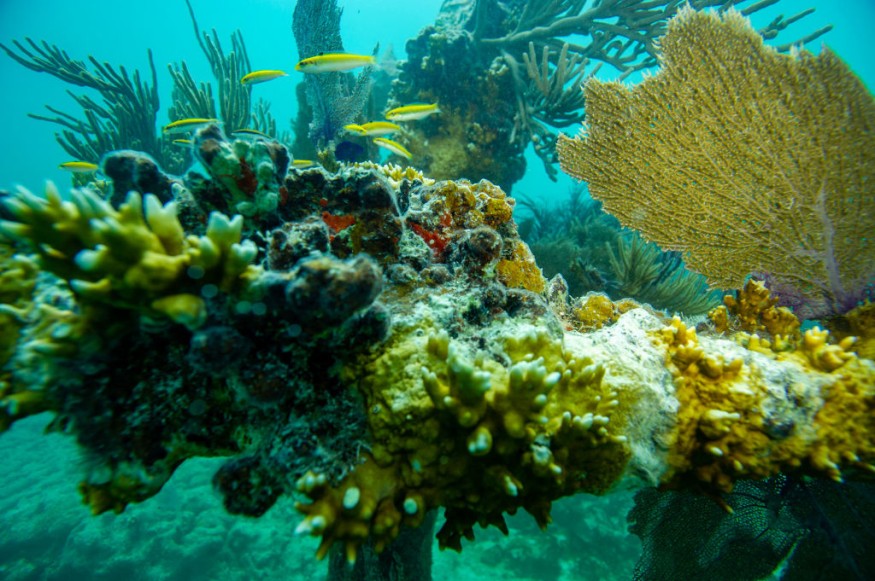The heat wave being experienced in the ocean waters could eventually cause the death of corals.

A latest study found out that climate change has been threatening the world's coral reefs because corals are usually sensitive to small changes that are happening in the temperature of the surrounding waters.
When marine heat waves occur, corals release the algae that live in their tissues and produce food for them. This will then make the coral to transform into completely white, which is a phenomenon known as the coral bleaching.
The study stressed that climate change, if enhanced by marine heatwaves, can drive extensive mortality in foundation species.
They noted that heatwave impacts could be exacerbated in species that engage in obligate symbioses, where the genetics of multiple coevolving taxa may be affected.
Findings of the study
In the study, researchers tracked the symbiotic associations of reef-building corals for six years through the use of a prolonged heatwave, including known survivorship for 79 of 315 colonies.
In the ocean, they observed that some of the most profound impacts of climate change are being experienced during marine heatwaves, or the pulse heat stress events in which water temperatures are abnormally high for unusual lengths of time.
They concluded that intense or prolonged marine heatwaves could result in mass bleaching and widespread coral mortality, including profound ecological and socioeconomic impacts.
"Heatwaves disrupt the critical relationship between reef-building corals and their obligate endosymbionts (family Symbiodiniaceae), causing them to bleach and making them vulnerable to starvation and disease," the study indicated.
Marine experts noted that a handful of coral studies have tracked the stability of symbioses through marine heatwaves and these studies have shown that differential bleaching can strongly depend on algal symbionts.
They, however, pointed out that only one study has directly assessed the impacts of these events on the population genetics of coral taxa in natural systems.
Experts recalled that between 2014 and 2017, a series of heatwaves took place across much of the world's tropical reefs.
They said that this period has been considered chronologically as the third global coral bleaching event on record, noting that it was unprecedented in terms of its severity, duration, and geographic spread.
Unfortunately, the phenomenon had led to mass coral bleaching and mortality across many coral reefs in the Pacific and Indian Oceans, including extensive damage to the Great Barrier Reef.
Researchers warned that prolonged bleaching often bring corals to die from starvation. They said that corals would recover only if they can reclaim their food source within a few weeks.
With global climate models predicting that heat waves will continue to increase in both frequency and duration in the coming days, the corals' ability to withstand and recover from bleaching is essential to their survival, according to the marine experts.
Coral bleaching
The National Oceanic and Atmospheric Administration explained that corals could survive a bleaching event, but they are under more stress and are subject to mortality.
Experts said that not all bleaching events are due to warm water.
They noted that in January 2010, cold water temperatures in the Florida Keys caused a coral bleaching event that resulted in some coral death wherein water temperatures dropped -6.7 degrees Celsius or 12.06 degrees Fahrenheit.
This was lower than the typical temperatures observed during that time.
Related Article : Scientists Study Extreme Underwater Heat Waves That Dramatically Impact Marine Life
Related Video:
© 2025 NatureWorldNews.com All rights reserved. Do not reproduce without permission.





